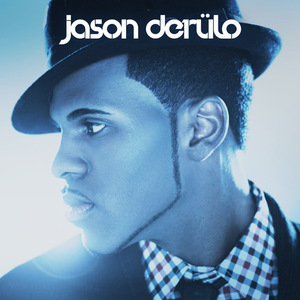Artist rides reputation with new album
The name Jason Derulo already draws significant recognition for a singer who has not released more than two songs to the public.

Ridin’ solo · Hip-hop artist Jason Derulo, who rose to fame with the chart-topper “Whatcha Say,” releases an eponymous debut Tuesday. - Photo courtesy of Warner Bros.
An accomplished songwriter and producer, Derulo has worked with artists such as Lil Wayne and Sean Kingston before getting in the studio to record his own material. After an eight months of production however, his self-titled debut album is finally ready for release.
The Miami native is also a professionally trained dancer and has acted in several plays in the New York theater scene. Derulo is a man of many trades, and his love for variety is apparent in his music as well. Many of his songs are fused with elements from different genres, setting him apart from the countless other hip-hop up-and-comers.
The album’s opening track is the single that first put him on the map, the ubiquitous “Whatcha Say.” Its infectious chorus, soulful snapping and clever, unexpected sampling of Imogen Heap’s “Hide and Seek” helped push the song to number one on Billboard charts in the United States, United Kingdom and New Zealand.
Still on heavy rotation in most mainstream radio stations, “Whatcha Say” provides the played-out tale of a cheating lover begging for forgiveness a new spin by explaining he should get another chance because one day he’ll be rich and famous. This amusing mix of sincerity and cockiness starts the album off on precisely the right foot.
“Ridin’ Solo” is next, continuing the upbeat mood. The crisp finger snaps from the previous track make another appearance interspersed in the song’s lyrics, adding to the simple, danceable beat. Easygoing lyrics about the life of a single man round out this solid second track.
The album’s second official single “In My Head,” has recently reached number nine in the United States. With a more pop-influenced sound, the up-tempo song will probably only keep climbing.
It is only moderately catchy, however, so this follow-up single is lackluster in comparison to its predecessor.
The dance party continues with the fourth track, which is slated to be released as his third single. “The Sky’s the Limit” is arguably the most forgettable song on the album; Derulo’s usually silky voice is annoyingly drowned out by overzealous Auto-Tuning, and thumping beats overpower the indistinguishable chorus. The rave-like feel that carries on with seemingly no end makes it difficult to find any real substance in this mess of a song.
Completely changing the mood, track five is a mellow ballad about planning a wedding. The sweet lyrics in “What If” are a stark contrast from the spicy metaphors Derulo offers in his tracks about the single life. While it is a refreshing break from the nonstop dancehall ditties, it still doesn’t offer much creatively. The verses, lined with clichés about soul mates and love at first sight, don’t break new ground.
It isn’t until the following track, “Love Hangover,” that Derulo returns to the fresh sound present in his first few songs. Also a pop-tinged number, this track would be a much better choice for a third single. Buoyant without being overly synthetic, the background beats complement Derulo’s voice instead of overpower it.
Continuing the trend of songs dealing with relationships, “Encore” is a more relaxed track about wanting more time with a significant other. The few not-so-subtle sexual innuendos in the hook and verses are uncomfortable not clever, which doesn’t help the awkward beat of the song. It’s as if the track wants to be a ballad, but the random bursts of synthesized sounds detract from its sincerity.
Derulo tries his hand at R&B with “Fallen,” a slower track about falling in love unexpectedly. His vocals really get the chance to shine in the catchy chorus, but there is still a hint of Auto-Tuning that is hard to ignore.
Derulo is at his prime when not suppressed by tacky computer-generated sounds, and a stripped-down version of this song would have been much more influential. An acoustic version in the future would probably be a hit.
“Blind,” the final track on the regular version of the album, is a sleepy ballad that won’t leave listeners much to remember. A repetitive chorus can’t be saved by the finger snaps Derulo is so fond of, and in the end the track gets lost in the shuffle of mediocre closing songs.
As a whole, the album has potential, but Derulo’s attempt to fuse together so many different elements in his music can sometimes be overwhelming.
The album only contains nine songs, disappointing considering he recorded about 300 tracks during his studio time. Many of those not on the album are floating around the Internet, and many of them are superior to the songs on the album. For example, Derulo is at his best in the honest ballad “Perfect,” which combines acoustic guitar, a sultry beat and pristine vocals.
Hopefully Derulo isn’t just another flash in the pan. Once he resolves to not let his technology get the better of him, he has a lot to offer.
